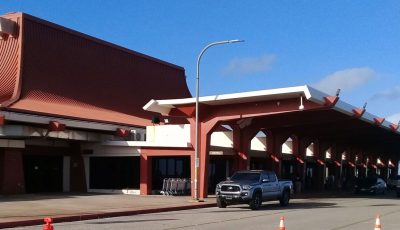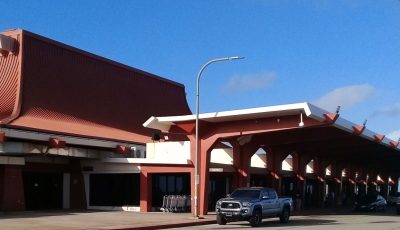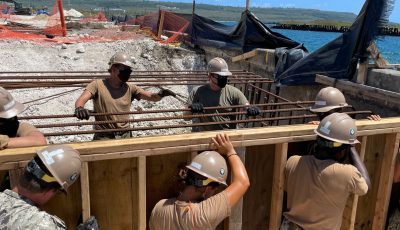CPA seeks federal subsidy for interisland air service
Following the recent suspension of flights by the CNMI’s only interisland air travel service due to a fee assessment dispute, the Commonwealth Ports Authority has reached out to the U.S. Department of Transportation requesting it extend the eligibility for its Essential Air Service program to the CNMI in order to subsidize interisland air service.
In a letter addressed to Transportation Secretary Pete Buttigieg, CPA chair Kimberlyn King-Hinds explained the CNMI’s interisland flight situation, citing the recent dispute with the CNMI’s sole commuter, Star Marianas Airlines Inc., which resulted in suspension of air-service.
“I am writing because the CNMI needs your help. Our community has struggled with obtaining affordable and reliable means of air travel between our most populated islands. With the suspension of air service from our only interisland passenger air carrier, the people of the Commonwealth face a struggle unlike most within the United States: our people cannot easily travel—even within our territory. This is an urgent issue that needs to be addressed immediately, especially in light of our current on-the-ground situation,” King-Hinds said.
The CPA chair said the only long-term solution to the problem is make federal subsidy available through various programs offered by the U.S. Department of Transportation, including the Essential Air Service Program, the Alternative Essential Air Service Program, and the Small Community Air Service Development Program. “Any resources you could provide to help our communities participate in these programs is deeply appreciated,” she said.
King-Hinds said the hope is that by being designated as an EAS-eligible community, the CNMI will be able to establish affordable and reliable interisland air travel through subsidizing commuter and certificated air carriers to serve the Rota and Tinian airports.
“I am asking that the entire CNMI, which includes Rota and Tinian, be designated as a small community eligible to receive EAS funding. Specifically, I ask that the department subsidize either multiple roundtrips a day with 30- to 50-seat aircraft or additional frequencies with aircraft with nine seats or fewer to connect the Rota and Tinian airports to the Saipan International Airport. The Rota and Tinian airports are both public primary commercial service non-hub airports, and the Saipan International Airport is a public primary commercial service small-hub airport. To my knowledge, the CNMI has never been designated as an eligible EAS community, and therefore, it has had an average subsidy per passenger of less than $1,000 during the most recent fiscal year,” she said.
King-Hinds, who is the recently appointed Association of Pacific Ports president, said that extending EAS-eligibility to the CNMI is of critical importance because it is in desperate need of federal funds to establish scheduled air service for its communities that currently have none.
“Without air service, the health, safety, and well-being of our people and the struggling economies of these communities are significantly threatened. This is apparent based on the simple fact that without air service, individuals living on Tinian and Rota will not have access to adequate medical care. There are no hospitals on Tinian and Rota. Residents there have to travel to Saipan to give birth, get hemodialysis, chemotherapy, and any other type of critical health care that is not available on Tinian and Rota. Elective health maintenance and care services like seeing an optometrist, dentist, or to simply get a mammogram are also not available on Tinian and Rota. Some of these critical services are also difficult to get on the island of Saipan, meaning many of our CNMI residents have to travel to Guam or the mainland to receive urgent critical care like chemotherapy and radiation,” she said.
“But the impact is not limited to just access to health care. The impact is very real to law enforcement [on] Rota and Tinian. Tinian and Rota do not have jails. Arrestees have to be transported to Saipan to be given their procedural due process. Arrestees currently are being released back into the community because of transportation issues. This poses a great danger to those communities, especially for victims of domestic abuse,” King-Hinds added.
King-Hinds noted that the CNMI has one of the highest rates of poverty and, without federal assistance, the fees dispute will only recur. Even if the current sole air carrier were to resume services, she said the CNMI risks future air services being suspended or disrupted should another dispute arise.
“The CNMI has one of the highest rates of poverty throughout the entire nation. Cost of travel between the islands are cost prohibitive with the current carrier. I fear that without federal assistance, these issues will recur regardless of who the carrier is,” she said.




























